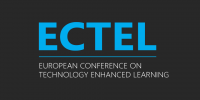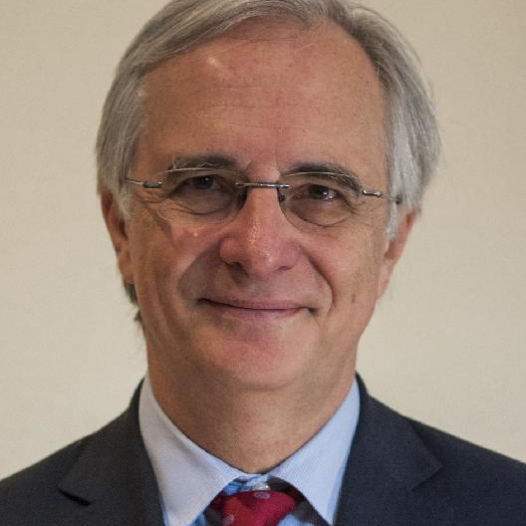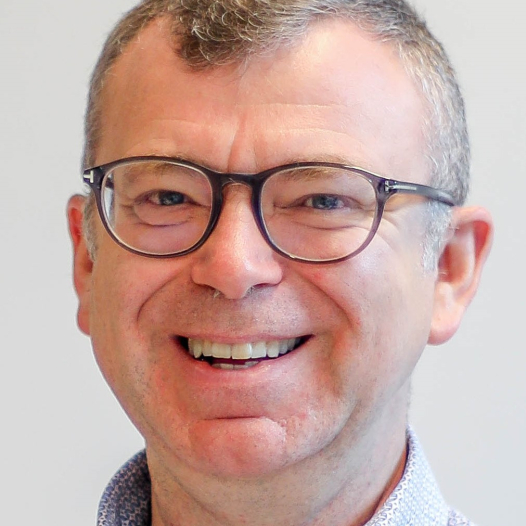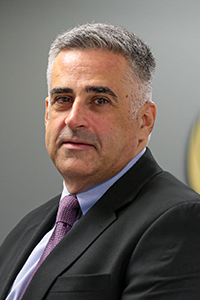Carlos Delgado Kloos
Universidad Carlos III de Madrid
Carlos Delgado Kloos is a Telecommunications Engineer from the Polytechnic University of Madrid (UPM) and a PhD in Computer Science from the Technical University of Munich. Since 1996 he is Professor of Telematics Engineering at the Universidad Carlos III de Madrid. In addition, he is currently Vice Rector for Strategy and Digital Education.
Carlos Delgado Kloos received the Ph.D. degree in Computer Science from the Technische Universität München and in Telecommunications Engineering from the Universidad Politécnica de Madrid. He is Full Professor of Telematics Engineering at the Universidad Carlos III de Madrid, where he is the Director of the GAST research group, Director of the UNESCO Chair on “Scalable Digital Education for All”, and Vice President for Strategy and Digital Education. He is also the Coordinator of the eMadrid research network on Educational Technology in the Region of Madrid. He is Senior Member of IEEE. He has been the Manager of ICT research projects at the Spanish Ministry and has carried out research stays at several universities such as Harvard, MIT, Munich, and Passau.
His main research interests are in Educational Technology. He has been involved in a large number of projects with European, bilateral, national, and regional funding. He has published around 500 articles in national and international conferences and journals and has further written a book and co-edited over a dozen. He has coordinated several MOOCs (on edX and MiríadaX) and is presently promoting the adoption of digital micro-credentials in Spain through the project CertiDigital.
Wim Van Petegem
KU Leuven, Belgium
Wim Van Petegem received the MSc degree in Electrical Engineering at the Rijksuniversiteit Gent, in 1987, with a thesis on Analysis of sound and vibration signals for fault detection and diagnosis of a harvest combiner. He also received the MSc degree in Biomedical Engineering at the KU Leuven, in 1989, with a thesis on Signal Processing for Electrical Impedance Tomography. He was Research Fellow at the same university, in the Department of Electrical Engineering, in the division ESAT-MICAS, from September 1987 till September 1993, interrupted for one year military service. In 1993, he got a PhD degree, with the thesis Iterative Solutions to Electronic Problems, based on Finite Element Methods: Electro-Thermal Simulation and Electrical Impedance Tomography. Afterwards, he went to the University of Alberta, Edmonton, Canada, for post-doctoral research on optical immunosensors. He worked there at the Department of Electrical Engineering and the Department of Immunology.
From October 1994, till September 1996, he was a post-doctoral fellow at KU Leuven, in the Division of Biomechanics and Engineering Design, working in the field of rehabilitation engineering. From October 1996 until October 1998, he was Senior Researcher with LINOV, the Leuvens Institute for Innovative Learning at the K.U. Leuven, involved in research on the introduction of ICT in education. From September 1998, he was Assistant Professor at the Science and Technology Department at the Open University of the Netherlands, involved in research on Web-based learning and in education on ICT and management.
In 2000, he returned to Leuven, where he became parttime senior researcher at LINOV (KU Leuven) and parttime lecturer at the Katholieke Hogeschool Leuven, Department of Economics. In 2002, he was appointed director of AVNet, a central support unit at the KU Leuven, for audiovisual and new educational technologies. Currently he is active at KU Leuven’s Faculty of Engineering Technology as Expert Multicampus & Engineering Education.
Roger Azevedo
University of Central Florida
Roger Azevedo is a Professor in the School of Modeling Simulation and Training at the University of Central Florida. He is also an affiliated faculty in the Departments of Computer Science and Internal Medicine at the University of Central Florida and the lead scientist for the Learning Sciences Faculty Cluster Initiative. He received his PhD in Educational Psychology from McGill University and completed his postdoctoral training in Cognitive Psychology at Carnegie Mellon University. His main research area includes examining the role of cognitive, metacognitive, affective, and motivational self-regulatory processes during learning with advanced learning technologies (e.g., intelligent tutoring systems, hypermedia, multimedia, simulations, serious games, immersive virtual learning environments). More specifically, his overarching research goal is to understand the complex interactions between humans and intelligent learning systems by using interdisciplinary methods to measure cognitive, metacognitive, emotional, motivational, and social processes and their impact on learning, performance, and transfer. To accomplish this goal, he conducts laboratory, classroom, and in-situ (e.g., medical simulator) studies and collects multi-channel data to develop models of human-computer interaction; examines the nature of temporally unfolding self- and other-regulatory processes (e.g., human-human and human-artificial agents); and designs intelligent learning and training systems to detect, track, model, and foster learners, teachers, and trainers’ self-regulatory processes. He has published over 300 peer-reviewed papers, chapters, and refereed conference proceedings in the areas of educational, learning, cognitive, educational, and computational sciences. He was the former editor of the Metacognition and Learning journal and serves on the editorial board of several top-tiered learning and cognitive sciences journals (e.g., Applied Cognitive Psychology, International Journal of AI in Education, Educational Psychology Review, European Journal of Psychological Assessment). His research is funded by the National Science Foundation (NSF), Institute of Education Sciences (IES), National Institutes of Health (NIH), and the Social Sciences and the Humanities Research Council of Canada (SSHRC), Natural and Sciences and Engineering Council of Canada (NSERC), Canada Research Chairs (CRC), Canadian Foundation for Innovation (CFI), European Association for Research on Learning and Instruction (EARLI) and the Jacobs Foundation. He is a fellow of the American Psychological Association and the recipient of the prestigious Early Faculty Career Award from the National Science Foundation.



